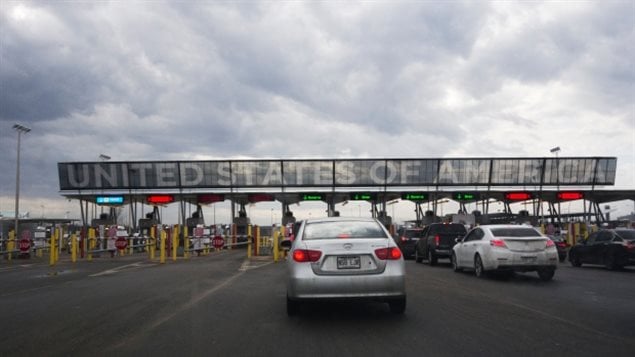Once upon a time (not all that long ago), crossing the border into the United States from Canada was as about as taxing as a light breeze on a summer day.
All you had to do was wave at the guy, who–likely as not–wouldn’t bother to move out from behind his desk, or–if he was confined to a booth–look up for a couple of seconds from behind the newspaper he was reading and nod.
At most, you might have to produce your driver’s licence.
No more.
It all began to change, of course, in September, 2001.
It is now a chore, marked by trepidation and a practised smile.
Border crossings are a no-man’s land and U.S. border agents set all the rules.
Understandable, since they are under the gun themselves, working in front of cameras with their supervisors watching.
They are crisp and no-nonsense and–by God–they have rules to enforce.
Turns out there is reason for that trepidation as your approach. Border guards can do what they want, when they want, and they’ve got U.S. law strongly behind them.
Take, for example, cell phones, computers and other electronic devices.
According to the CBC, Canada’s privacy commissioner, Daniel Therrien, told a House of Commons committee earlier this week that Canadians should be “very concerned” about their electronic baggage.
Under U.S. law, Therrien said, U.S. Customs and Border Protection officers can look at mobile devices and even demand passwords.
Citing statistics indicating that searches of mobile phones had increased between 2015 and 2016, Therrien said Canadians should assess the “risk tolerance” to having border guards examining their records.
(In February, before his rise to the White House, Gen. John Kelly, then the head of Homeland Security, suggested that American officers could ask people entering the U.S. about the Internet sites they visit as well as passwords, prompting civil liberties groups to express “deep concern.”)
Returning to Canada? A whole lot less foreboding.
While border guards are also permitted to inspect cell phones because they are goods (and–like the Americans–wear guns), Canadian policy sets a higher threshold.
Higher threshold or not. Returning to Canada–like entering the U.S.–is not what it once was. You now actually have to stop.
No longer will a friendly wave suffice.







For reasons beyond our control, and for an undetermined period of time, our comment section is now closed. However, our social networks remain open to your contributions.